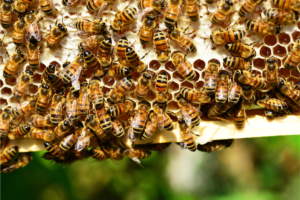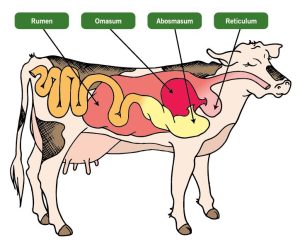Here are the scientific names of farm animals. All animals listed below are farm animals. Though some are more common than others, they all can be bred by farmers. The scientific names of farm animals include;
- Cattle – Bos taurus
- Pig – Sus scrofa domesticus
- Chicken – Gallus gallus domesticus
- Sheep – Ovis aries
- Goat – Capra aegagrus hircus
- Horse – Equus ferus caballus
- Duck – Anas platyrhynchos domesticus
- Turkey – Meleagris gallopavo
- Donkey – Equus africanus asinus
- Geese – Anser anser domesticus
- Rabbit – Oryctolagus cuniculus
- Quail – Coturnix coturnix
- Guinea Pig – Cavia porcellus
- Emu – Dromaius novaehollandiae
- Alpaca – Vicugna pacos
- Llama – Lama glama
- Buffalo – Bubalus bubalis
- Ostrich – Struthio camelus
- Mule – Equus asinus x Equus caballus
- Yak – Bos grunniens
Cattle (Bos taurus)
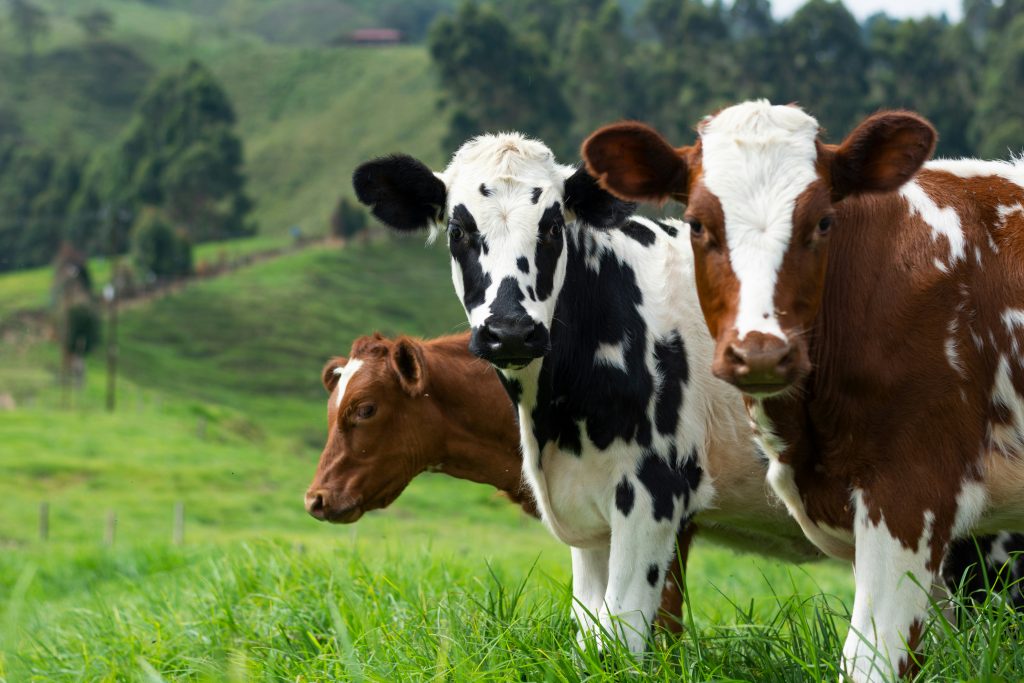
Cattle, primarily comprising cows and bulls, are integral to agriculture globally. Domesticated for millennia, they provide dairy, meat, and labor. Cows yield milk, cheese, and butter, while bulls are utilized for breeding and as draught animals.
Various cattle breeds exist, adapted to diverse climates and purposes. Despite modernization, cattle farming remains central to rural economies. Sustainable practices and ethical treatment are increasingly emphasized in cattle rearing due to environmental concerns and animal welfare awareness.
Pig (Sus scrofa domesticus)
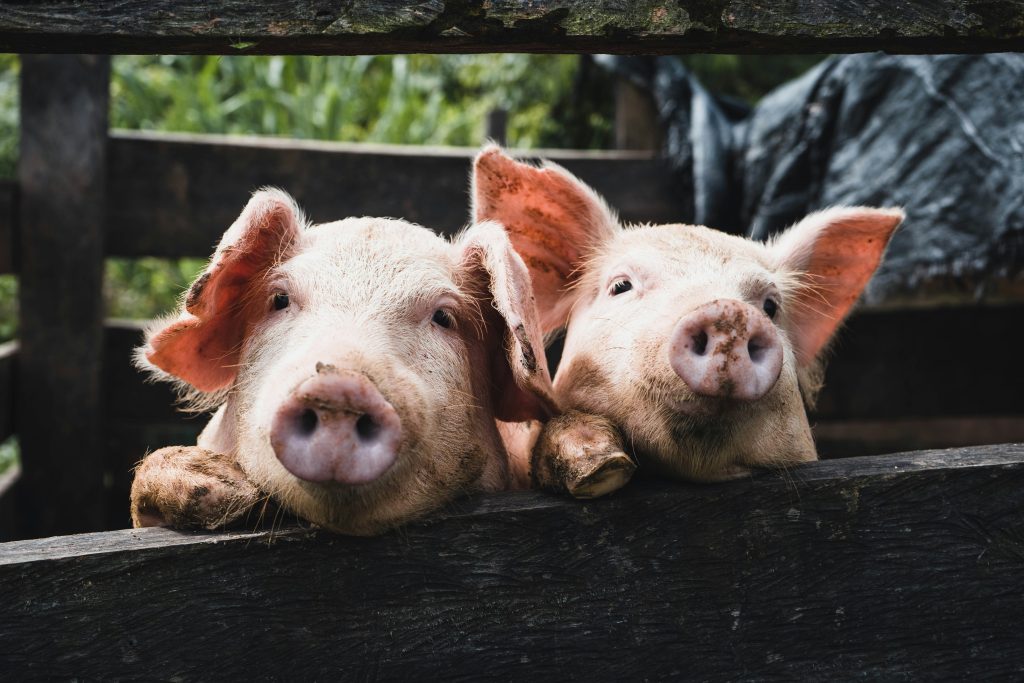
Pigs are highly adaptable and intelligent mammals raised globally for their meat, known as pork. Domesticated for thousands of years, they thrive in various climates and farming systems.
Pigs are prolific breeders, yielding large litters, making them economically valuable to farmers. They are omnivores, consuming grains, vegetables, and occasionally meat scraps. Modern pig farming emphasizes hygiene, nutrition, and welfare to ensure healthy livestock and high-quality pork production.
Sustainable pig farming practices aim to minimize environmental impact while meeting consumer demands for ethically sourced pork products.
Chicken (Gallus gallus domesticus)

Chickens, integral to agriculture, are domesticated birds primarily raised for their meat and eggs. They are among the most widespread and economically significant farm animals globally.
Chickens are adaptable and thrive in various climates and farming systems, from free-range to intensive production. Their eggs provide a vital source of protein and nutrients, while chicken meat is a staple in diets worldwide.
Selective breeding has led to specialized breeds optimized for meat or egg production. Modern chicken farming emphasizes biosecurity, nutrition, and welfare to ensure healthy flocks and sustainable production practices.
Ethical considerations increasingly influence chicken farming, with growing awareness of animal welfare standards and consumer preferences for free-range and organic poultry products.
Sheep (Ovis aries)

Sheep, essential to agriculture for centuries, are domesticated ruminants primarily raised for their wool, meat (mutton), and milk.
They are adaptable to various climates and environments, with diverse breeds suited for specific purposes and regions. Sheep farming involves grazing on pastures and supplemental feeding, with wool shearing conducted annually.
Sheep are efficient converters of forage into valuable products, contributing to sustainable agriculture. Meat from sheep is a significant protein source, while wool remains a renewable fiber used in textiles worldwide.
Sustainable sheep farming practices prioritize animal welfare, environmental stewardship, and genetic diversity to ensure long-term viability and productivity.
Goat (Capra aegagrus hircus)
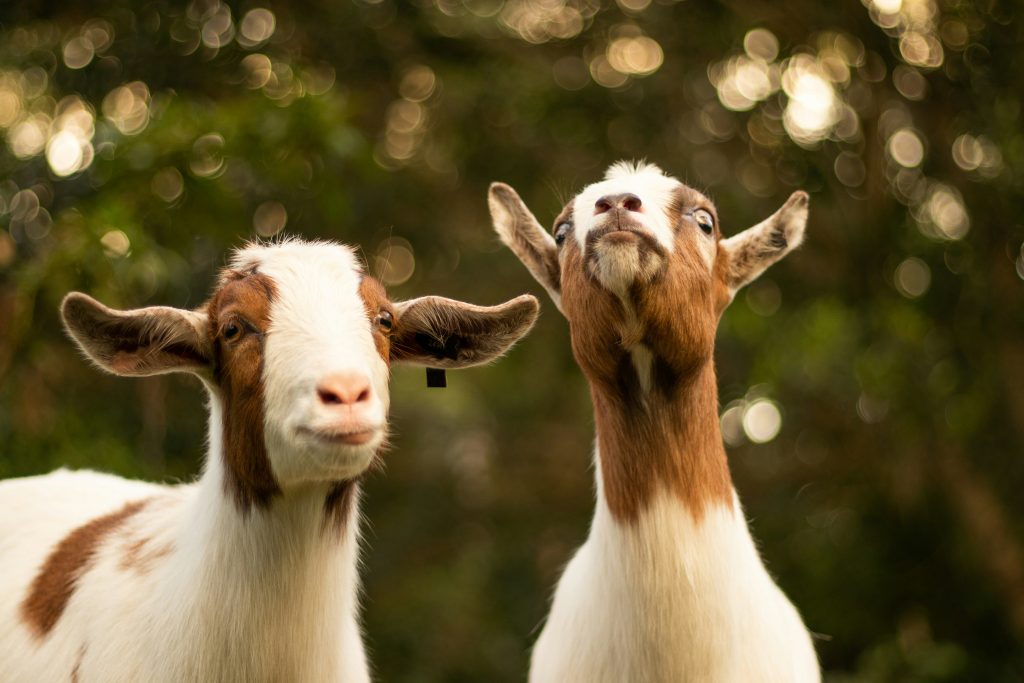
Goats, renowned for their versatility and hardiness, are domesticated ruminants widely raised for meat, milk, and fiber.
They thrive in diverse environments, from arid regions to mountainous terrain. Goats are efficient browsers, consuming a variety of vegetation including grass, leaves, and shrubs.
Their milk is highly nutritious and used to produce cheese, yogurt, and other dairy products. Goat meat, known as chevon or cabrito, is lean and flavorful, popular in many cuisines.
Horse (Equus ferus caballus)
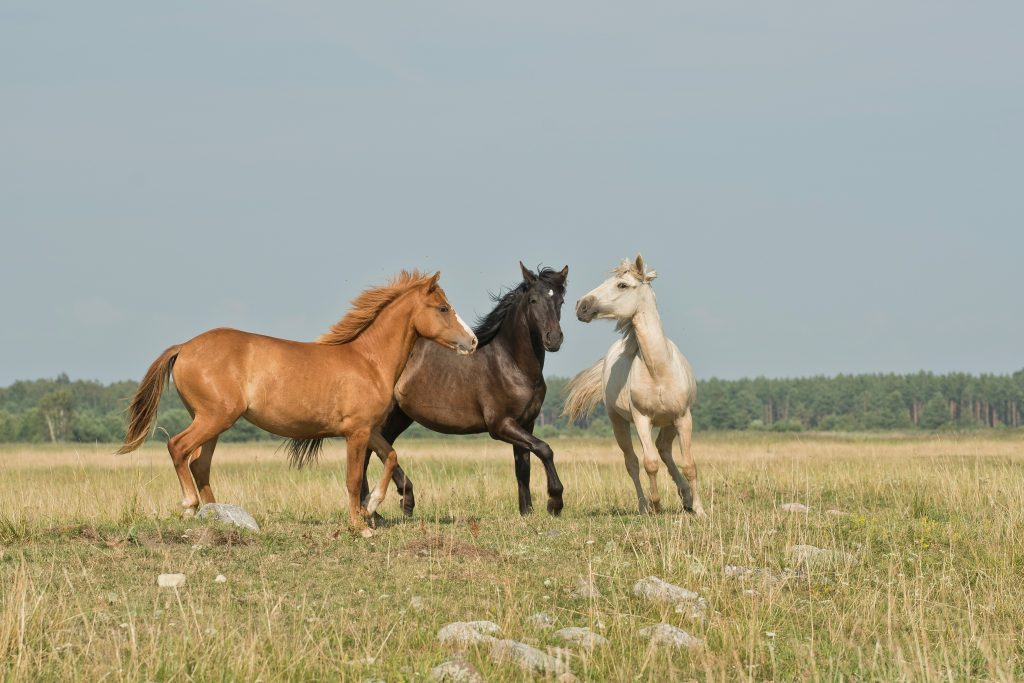
Horses, valued for their strength, speed, and companionship, have been domesticated for centuries. They serve various roles, from transportation and agriculture to sport and recreation.
Horses are herbivores, primarily grazing on grass and hay. Equine breeds are diverse, with each adapted to specific tasks and environments. Horse care involves proper nutrition, regular exercise, and veterinary attention.
Ethical treatment and welfare considerations are paramount in modern horse management. From working on farms to competing in equestrian events, horses hold a special place in human history and culture.
Duck (Anas platyrhynchos domesticus)
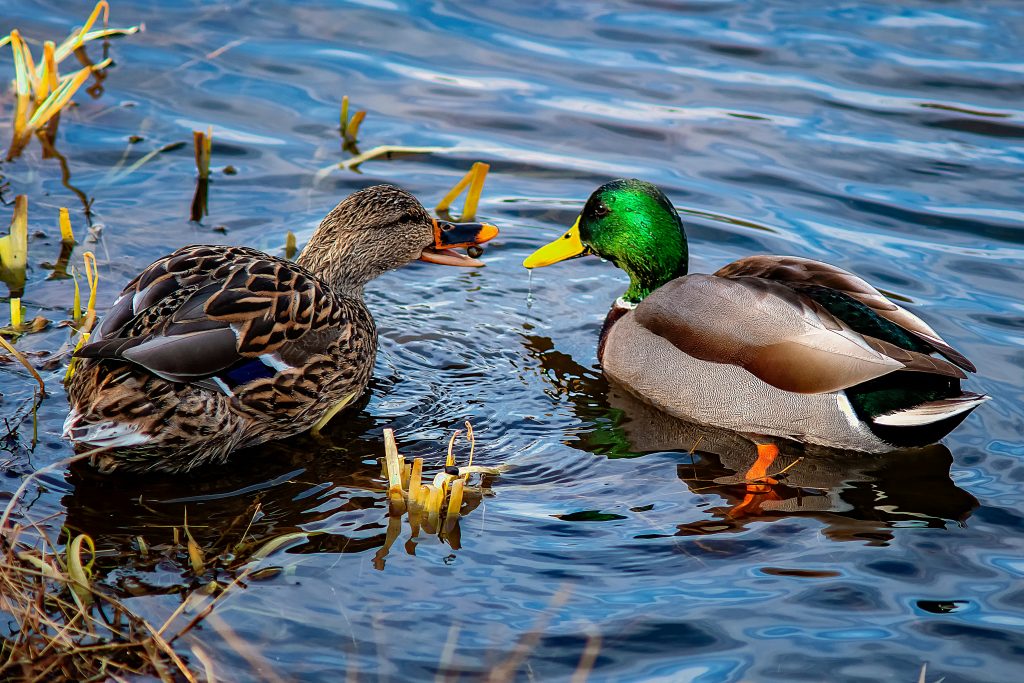
Ducks, known for their adaptability and versatility, are domesticated waterfowl raised primarily for their meat, eggs, and feathers.
They thrive in various aquatic environments, from ponds and lakes to controlled farm settings. Ducks are omnivores, consuming a diet rich in aquatic plants, insects, and grains.
Their eggs are nutritious and used in culinary applications worldwide. Ducks play a vital role in wetland ecosystems and contribute to diversified agriculture.
Turkey (Meleagris gallopavo)
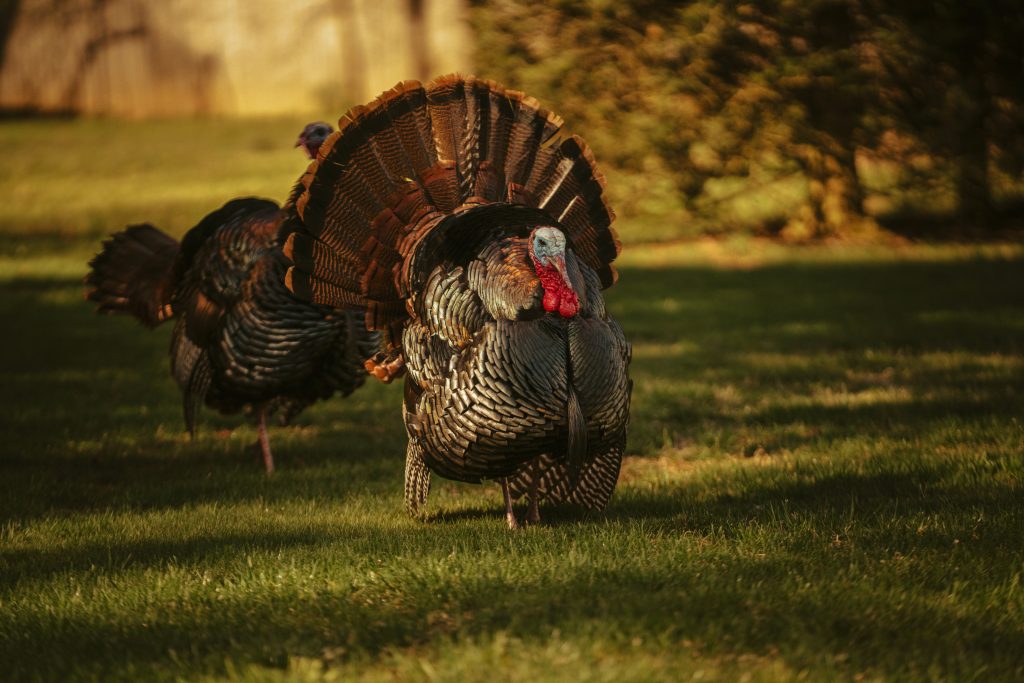
Turkeys, domesticated for their meat and occasionally kept as pets, are large poultry birds primarily raised for consumption. They are native to North America and have been bred selectively for centuries.
Turkeys are omnivores, feeding on grains, seeds, insects, and vegetation. They are valued for their flavorful meat, particularly during festive occasions like Thanksgiving and Christmas.
Donkey (Equus africanus asinus)

Donkeys, esteemed for their strength, intelligence, and endurance, are domesticated members of the horse family. Primarily used as working animals, they excel in tasks such as hauling loads and transportation in rugged terrains.
Donkeys are herbivores, primarily feeding on grass, hay, and grains. They are valued for their sure-footedness and adaptability to harsh environments. Modern donkey management emphasizes humane treatment and proper care to ensure their well-being.
Donkeys remain indispensable in agriculture and transportation, particularly in regions where mechanization is limited.
Geese (Anser anser domesticus)

Geese, domesticated waterfowl known for their adaptability and social nature, are primarily raised for their meat, eggs, and feathers.
They thrive in various environments, including ponds, lakes, and pasturelands. Geese are omnivores, feeding on grass, grains, insects, and aquatic plants. Their eggs are nutritious and used in cooking and baking.
Rabbit (Oryctolagus cuniculus)
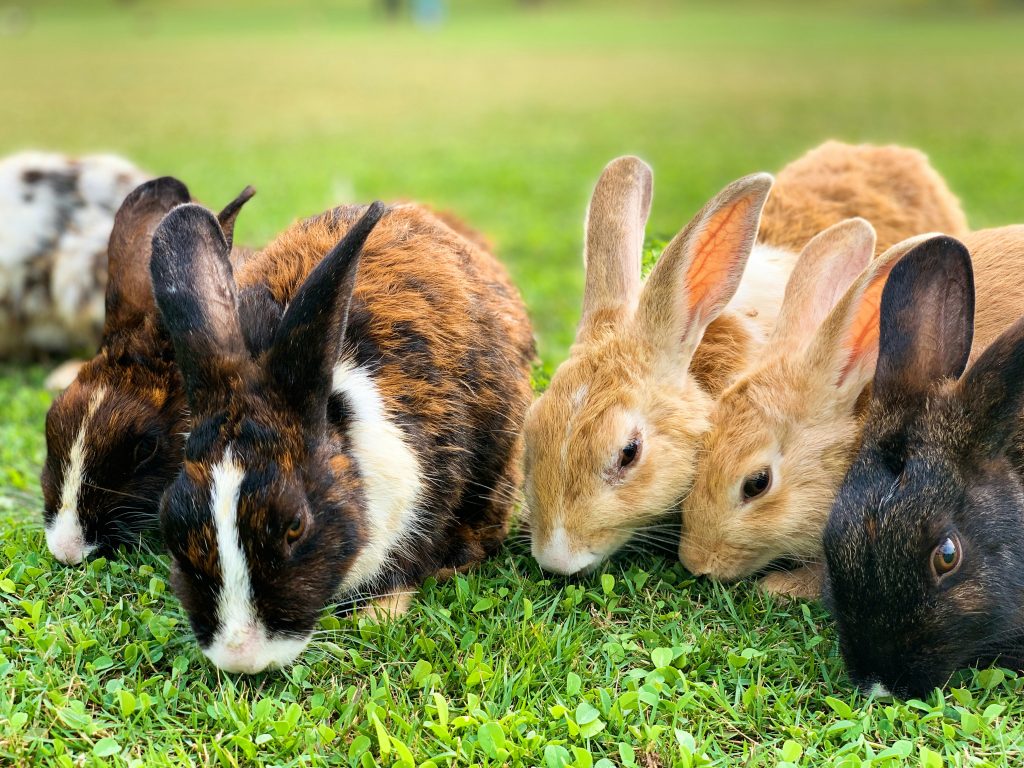
Rabbits, small mammals known for their prolific breeding and gentle demeanor, are raised for meat, fur, and as pets.
They are herbivores, feeding primarily on hay, vegetables, and pellets. Rabbit meat is lean and high in protein, consumed in various cuisines globally.
Their fur is used in clothing and accessories. Rabbits are easy to care for and are popular pets due to their docile nature.
The bottom line
The above explained are the most common farm animals. You’ll most likely never find a yak in a farm, but they’re farm animals.
understanding the scientific names of farm animals provides a deeper insight into their taxonomy, evolutionary history, and biological characteristics.
From Bos taurus to Sus scrofa domesticus, Gallus gallus domesticus, and beyond, these names offer a universal language for researchers, veterinarians, and farmers worldwide.
Scientific names also highlight the interconnectedness of species and ecosystems, emphasizing the diversity of life on our planet.
By recognizing and utilizing scientific nomenclature, we enhance communication, precision, and clarity in discussions related to agriculture, conservation, and animal welfare.
